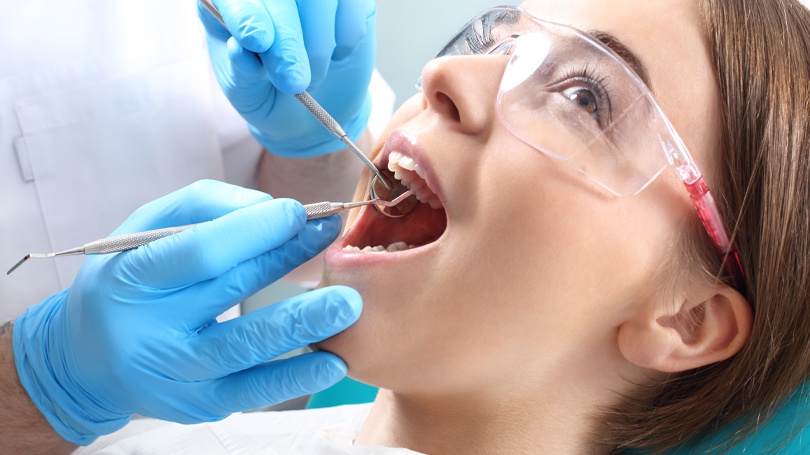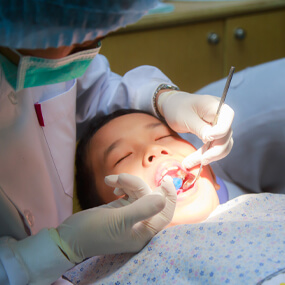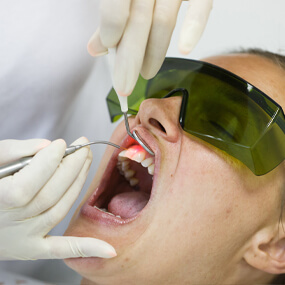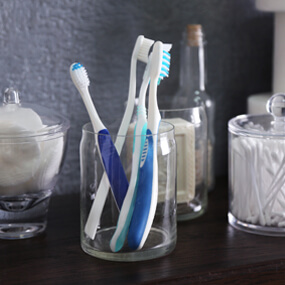Overcoming the Fear of Going to the Dentist

Some surveys suggest that as many as 24 percent of people experience some degree of dental phobia. While some dental fear is perfectly natural, intense dental anxiety—also known as odontophobia—will often interfere with your health. It may lead you to not get the preventative or restorative care you need, and that will not only cause and exacerbate oral health issues but systemic health issues too.
The Causes of Dental Phobia
There are a number of reasons a person can develop dental anxiety, and that problem can worsen over time. In many cases, it is not a single factor but a combination, including:
- Fear of pain – Everyone fears pain, but dental fear is often misguided since most modern dental techniques have little to no discomfort associated with them. Such anxiety is sometimes caused by a bad experience, especially early in life, but in many cases, the fear develops based on stories and misconceptions and through sheer imagination. What you can imagine is far worse than the reality.
- Fear of helplessness – For many, fear of the dentist is rooted in a deeper fear of losing control. Just the notion of sitting in a dentist’s chair and not being able to see what is going on can make a person feel trapped.
- Fear of needles – Needle phobia is quite common, and severe cases—also called trypanophobia—can be debilitating. The idea of a needle in the mouth can trigger an intense reaction even in people with mild needle phobia.
- Fear of anesthesia failing – Some people fear that the anesthesia will not work properly and that they will subject to excruciating pain. Others fear the anesthesia will fail and cause some lasting damage or even lead to death.
- Fear of anesthetic side effects – There are a number of common side effects associated with anesthesia. In addition to a fat lip, patients can fear dizziness, headaches, vomiting, confusion, sweating, shivering, and slurred speech.
- Fear of embarrassment – Some people feel self-conscious about their appearance or weight or even the problems with their teeth as well as potential bad breath. Others are triggered by the encroachment of their personal space.
- Trauma – Fear of pain is sometimes linked to a bad experience. In some cases, the experience was so traumatic that the patient has post-traumatic stress disorder that must be managed with care.
The Signs of Dental Phobia
Often, a person with dental anxiety will do whatever is in their power to avoid a dental visit. Most will not visit a dentist unless they are experiencing debilitating pain. Other indications include:
- Sleeping difficulties the night before a visit
- Nervousness that ramps up in the waiting room
- A feeling of dread that makes it difficult to enter the office
- Nausea, crying and other physical symptoms linked to dental visits
- Feelings ranging from uneasiness to panic when dental tools are in the mouth
Managing Your Dental Phobia
When dental anxiety is mild, patients can often manage it themselves with various coping techniques. When it is severe, the patient may require therapy. Some of the strategies available include:
- Deep breathing exercises – Deep breathing is a relaxation technique that can be effective for all manner of stress. There are various approaches, such as numbered breathing, rib-stretch breathing, and diaphragm breathing. A basic technique is to breathe in slowly through the nose, counting from one to five. You can then exhale through the mouth, counting from one to five. Repeat that process until you have calmed.
- Progressive muscle relaxation – Progressive muscle relaxation (PMR) involves alternating between tensing and relaxing a muscle group. It is often recommended that you do it several minutes at a time and focus on several muscle groups, such as the arms, jaw, forehead, neck, and legs. Tense the muscle group for 15 seconds. Slowly relax the group over 30 seconds. Despite the focus, this can provide relaxation throughout the body.
- Systematic desensitization – Desensitization is a common therapy tool but can be done on your own as well. It generally involves using deep breathing and PMR to control triggered responses. You trigger these responses by viewing images and videos online of needles, dental chairs, dental drills, and so forth.
- Attention modification – If you are a parent, chances are you have used this technique to, for instance, make your child laugh while he or she got a treatment that scared them. This works with adults as well, and adults can distract themselves by counting ceiling tiles or raising the legs whenever anxiety is sensed.
- Hypnotherapy – Hypnotherapy is a specialized form of therapy involving hypnosis. Hypnotherapy can involve deep breathing, PMR, and distraction techniques as well as hypnosis. Children tend to be more open to hypnosis than adults, but it can be effective for adults as well. Furthermore, once educated on the techniques, many adults are able to hypnotize themselves in order to manage anxieties.
Discuss Your Dental Anxieties With Your Dentist
For those with dental phobia, perhaps the biggest mistake is not being forthright with their dentists. As mentioned, dental fear is a common problem. Dentists receive training on how to manage such anxieties and are aware of the resources should outside help be required. Chairside manner varies from dentist to dentist. If you inform your dentist of your anxiety, and he or she reacts in a manner that makes you feel uncomfortable, then that is your cue to find the right dentist for you.
If loss of control tends to be your trigger, a dentist who understands such anxieties can work with you to alleviate those stressors. In some cases, the dentist explaining what he or she is doing at every stage is enough to eliminate that kind of stress. Many dentists will also establish a safe signal, such as raising your hand, so that if the fear ever becomes too much, it alerts them to stop what they are doing immediately.
Overcome Your Dental Anxiety
At Scottsdale Cosmetic Dentistry Excellence, nothing is more important to us than your complete comfort and satisfaction. We appreciate that dental phobia is a hurdle for many patients, and our mission is to help you overcome it in the most compassionate way possible. Jeffrey D. Clark, DDS, is a premier dentist in Arizona with more than 20 years of experience. If you experience anxieties related to dental care, let us know. Dr. Clark will work with you to make each visit as relaxing as possible.
How we overcome dental anxiety depends on the individual because each situation is unique. Many of our patients are able to relax through nitrous oxide—also known as laughing gas—or oral sedation. It puts them in a moderately sedated state in a safe and effective way that lets them get the perfect smile they have always wanted. Most of our procedures are virtually painless, but in cases of severe anxiety or multiple procedures in a single visit, we offer sleep dentistry. An anesthesiologist will put you in a deeply sedated state to ensure that you are unaware of the dental procedure. Call us at 480 585 1853 to learn more about your options and to schedule an appointment.




